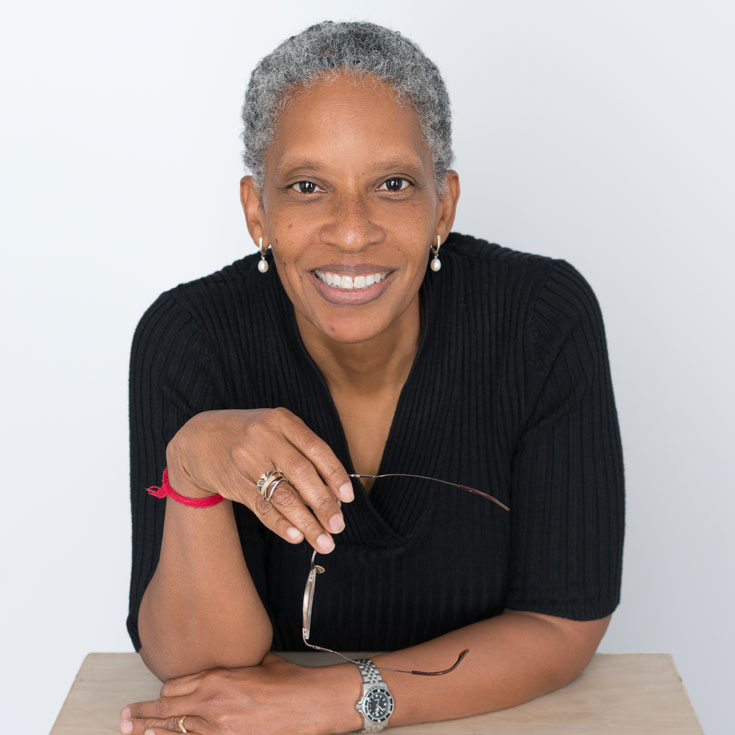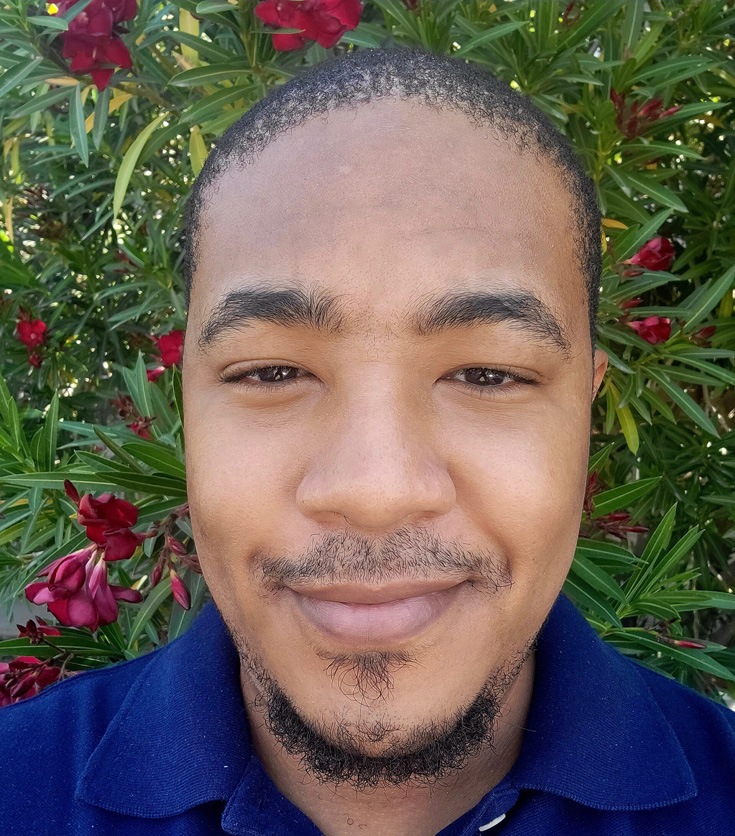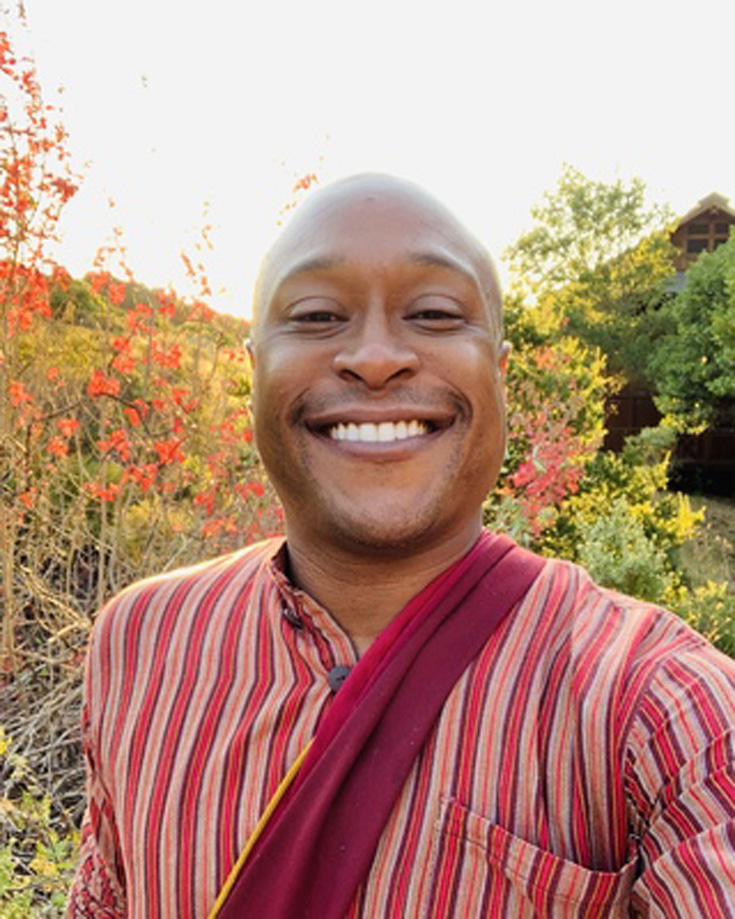The Spiritual Leadership of Malcolm X
For Malcolm X Day, four Buddhist practitioners and teachers offer their commentary on Malcolm X's spiritual journey, and what his example as an African American Muslim minister and human rights activist has meant to their own. The post The...

For Malcolm X Day, Kamilah Majied, Pamela Ayo Yetunde, Johnny Dean Jr., and Justin F. Miles offer their commentary on Malcolm X’s spiritual journey, and what his example as an African American Muslim minister and human rights activist has meant to their own.

Malcolm X, 1964. Original black and white negative by Marion S. Trikosko. Via the Library of Congress.
Honoring the Spiritual Leadership of El-Hajj Malik El-Shabazz
By Dr. Kamilah Majied

Kamilah Majied
May 19 marks the 97th anniversary of El-Hajj Malik El-Shabazz’s birth. It’s a good time to reflect on how his expansive leadership, cultivated by his ever-growing spirituality, positively enriched humankind.
Just as each spiritual tradition has guiding principles that reflect the wisdom of many spiritual traditions, contemplative leaders such as Malcolm X live and lead in ways that have deep resonance with the wisdom of many spiritual traditions.
As a Black scholar-activist raised Muslim, I experience reverberations of Islamic teachings alongside echoes of the words of Malcolm X which have come to resonate beautifully together throughout my 40 years of Buddhist practice.
Malcolm X transmuted his sufferings with drugs and violence into compassionate guidance and leadership.
One such resonance is the Islamic and Buddhist insight about the profound enrichment of our humanity that can be achieved through reading. Islamic scholarship is the foundation for much of the humanities, mathematics, and sciences because so many historical and contemporary Muslim scholars understood that the development of their minds through reading, creating, and writing was an act of faith, an expression of devotion to their spiritual practice. I remember when I was a teenager hearing a speech where Malcolm X said that his alma mater was books and that “after becoming a Muslim in prison, I read everything I could put my hands on in the prison library.” El-Hajj Malik’s voracity in reading matched that of my mother and further fueled my own journey into the world of books as an aspect of my spiritual growth.
My mentor, Buddhist philosopher and educator Dr. Daisaku Ikeda has written: “Reading allows us to view the incredible kaleidoscope of human behavior and emotion. It also gives us insight into the vast deep ocean of life existing beneath the countless rolling waves.” Exploring human experience through reading widely as I practice Buddhism helps me understand the waves of my own and others’ feelings and actions as undergirded by the currents of our karma and the current of our enlightenment. I have come to see how we can navigate the currents of karma and direct the current of our own enlightenment through practice.
The most salient lineage of insight that I can trace from my immersion in Islam and the wisdom of El-Hajj Malik El-Shabazz all the way through to my Buddhist practice is the wisdom of transforming adversity into opportunities for growth. Malcolm X embodied this wisdom by transmuting his sufferings with drugs and violence into compassionate guidance and leadership to steer people free of those sufferings. He states “There is no better teacher than adversity. Every defeat, every heartbreak, every loss contains its own seed, its own lesson”.
Through the teachings of Islam and Buddhism, and with deep gratitude for the spiritual, intellectual, and social justice leadership of El-Hajj Malik El-Shabazz, I can “turn poison into medicine”. This means manifesting the wisdom of the Lotus Sutra and healing myself and others through transforming the four sufferings into enlightenment.
Original Goodness
By Pamela Ayo Yetunde

Pamela Ayo Yetunde. Photo by Miriam Phields.
I don’t remember how old I was when I read The Autobiography of Malcolm X: As Told to Alex Haley (1964), but I remember a few things: I was a young child (born in 1961) who didn’t understand most of what she was reading; it was extracurricular (and therefore in my parents’ house or in the library) I had no adults helping me make sense of it; (my parents didn’t believe in helping children understand grown folks’ business); and I wanted to be free from the legacies of slavery and therefore vowed I would one day change my “slave name” to an African name. The wholesome desire for freedom and the vow to make that difference in my own life, qualities I learned later are similar to the bodhisattva ideal, came directly from El-Hajj Malik El-Shabazz, popularly known as Malcolm X, and that is why I can see his spiritual formation through a Buddhist lens.
We would do well to celebrate his life in our sanghas.
El-Shabazz was given the birth name of Malcolm Little, who as an adult replaced “Little” with an “X” when he joined The Nation of Islam, then renamed himself again as El-Hajj Malik El-Shabazz after he made his pilgrimage to Mecca in Saudi Arabia. I believe the reasons why there is and should be a Malcolm X Holiday is because of El-Shabazz’s willingness to examine and re-examine himself, critique society as well as his own views in light of his own lived experience, revise his message, take strong and unpopular stands, promote enlightenment in the universal sense, and remain committed to human rights. This year, Malcolm X Day is on May 20th (he was born on May 19, 1925), and Buddhists should consider celebrating this bodhisattvic Muslim with a dharma talk about his bodhisattvic shape-shifting humanistic qualities.
When El-Shabazz was Little, he committed crimes for which he was imprisoned. Buddhism has stories of people who committed crimes and acts they could have been penalized for. The story of Angulimala is such a tale. When Little became X, he renounced criminality and embraced his original goodness. Through Islam he came to understand that he was not innately subordinate to white people because of the color of his skin, on the contrary, he descended from the original people, Africans, and therefore could claim an original goodness akin to the Buddhist concept of basic goodness. Buddhism is about renouncing harmfulness towards one’s own being, Black people, and everyone else. Like many in Buddhism, X was not perfect, for he had not yet worked through the ways he attributed demonic qualities to all white-skinned people. Between being X and becoming El-Shabazz, Malcolm made his pilgrimage to Mecca and said of that lived experience:
My vocabulary cannot describe the new mosque [in Mecca] that was being built around the Ka’aba, a huge black stone house in the middle of the Grand Mosque. It was being circumambulated by thousands upon thousands of praying pilgrims, both sexes, and every size, shape, color, and race in the world. […] My feeling here in the House of God was numbness. My mutawwif (religious guide) led me in the crowd of praying, chanting pilgrims, moving seven times around the Ka’aba. Some were bent and wizened with age; it was a sight that stamped itself on the brain.”
I relate to the feeling of numbness in the “House of God”, but I’m thinking about the awe I felt at Deer Park Monastery when 500 people of color took refuge with Thich Nhat Hanh. Before being there, I took refuge with just several people. While at Deer Park with 500 people of color, the majesty of the ritual was resplendent and temporarily numbing – it turned my preconceived worldviews of what spiritual community could be, on its head.
El-Shabazz deserves this holiday and we would do well to celebrate his life in our sanghas.
A Gusto Spirit
By Johnny Dean Jr.

Johnny Dean Jr.
Malcolm X, like Nichiren Diashonin, the founder of Nichiren Buddhism, had a revolutionist mind. It’s not simply because both changed their names and suffered persecution that they remind me of eachother, but because of Malcolm’s gusto spirit.
Nichiren in Japan in 1260, reminds me of Malcolm X in the U.S. in the 1960s — they both spoke truth to power despite the obvious dangers to their lives. In 1260, Nichiren wrote the Rissho Ankoku-Ron (Establishing Right Doctrine and Peace of the Nation), a letter critiquing Japan’s military dictatorship regarding their mismanagement of religious affairs. Consequently, Nichiren’s life took a wild turn, leading him to be hunted, chased, and persecuted by Japan’s government. Even though he was exiled to Sado Island, he kept his faith in the Lotus Sutra. Malcolm X, on the other hand, persistently criticized the U.S. government’s racist policies even though he was politically persecuted by the U.S. Before he could be shunned by the Nation of Islam for openly criticizing the Nation’s founder, Elijah Muhammad, Malcolm fled the Nation and was assassinated by gunfire on February 21, 1965 while he was speaking truth to power.
Malcolm X gave us a deep-rooted belief in hope for freedom for Black folks.
In Malcolm’s zenith, he gave a series of polemic and controversial speeches and interviews. On December 10, 1964, at a rally in Detroit, Michigan, he asked, “[If] it is right for America to draft us [into the Vietnam War] and teach us how to be violent in defense of her, then it is right for you and me to do whatever is necessary to defend our own people right here in this country.” During that year, President John F. Kennedy was assassinated. As a response to the assassination of the president, Malcolm claimed that the death was caused by the “chickens coming home to roost.” In short, he was saying that America’s imperialist and racist karma was the cause for its own president’s demise. This statement was deemed outrageous and unbecoming of an American, so Malcolm became a target of the F.B.I, the C.I.A., and other entities intimidated by intelligent and influential Black men.
Malcolm X was so powerful because he shared his “by any means necessary attitude” as love for his people and gave us a deep-rooted belief in hope for freedom for Black folks. What he shared was similar to what Nichiren demanded of his followers when he wrote in his letter Urno-dono Gohenji, “if you must lay down your life for the sake of the Lotus Sutra, have no regrets.” Malcolm amplified this same gusto spirit when he commented in 1962 for the “Chicago Defender”, “[If] you are not ready to die for it, take freedom out of your vocabulary.” As we celebrate Malcolm X, let us consider the cost this is required for love and freedom, and then, let us get down to business.
The Light of the Black Prince of Shabazz that Illuminates Confidence
By Justin F. Miles

Justin F. Miles
Malcolm X also known as El-Hajj Malik El-Shabazz, is an enlightened being that underwent many stages of transformation during his life’s journey. As a young man, he embraced the life of the streets and willingly caused himself and others suffering. During his incarceration he thought deeply about his life choices, his potential, and how through discipline and renunciation he could transform himself into someone who could truly benefit others. As a member of the Nation of Islam, he confidently, compassionately and often wrathfully engaged the system of white supremacy and Black people, to both wake up to the truth of their failings and the possibility of a better future.
For Malcolm to grow he had to question reality again and again.
After leaving the Nation, Malcolm went on his Hajj to Mecca and discovered that not only were white people not inherently evil, but also that race doesn’t determine morality or define membership in the family of humanity. Before his assassination, Malcolm understood that the struggle of Black people was international and that the struggles of Black people everywhere needed to be addressed on the world stage. Nearly 60 years after his death, Malcolm continues to inspire and motivate millions to see through their personal and collective illusions with the aim of liberating Black people everywhere.
For Malcolm to grow he had to question reality again and again, letting go of anything that turned his awareness towards unhealthy behavior and thoughts and make difficult life changes that sacrificed popularity and affluence for truth.
This practice uses Malcolm X as a source of inspiration to see through our ignorance and experience the innate confidence that lies inside all of us
Contemplation
All beings since time immemorial have experienced the suffering of their own ignorance. We fool ourselves through self-deception that what is painful is pleasurable and that the happiness of contentment should be avoided. To abandon this mindset, we first allow ourselves to contemplate the various habitual patterns of behaving, thinking, and feeling that cause ourselves suffering that keep us from seeing the truth of ourselves, our relationships, and our world. The mind that sees confusion is not confused.
Practice shamatha meditation for 10 minutes. Practice contemplation for five minutes.
Bring to mind habitual tendencies or ways you cause yourself suffering. Feel this suffering in your body. Bring to mind images, memories associated with your habitual tendencies. Do not judge them or yourself, just hold the experience in your awareness. Converse with your habitual tendencies. Ask them why they’re there and what they have to teach you. What do they say? What is their function in your life? What would happen if you didn’t engage in them? What do they say? Own your habitual tendencies through “I” language i.e. “I act like I know myself but honestly am confused about who I am.”
Invocation
From the trans-conceptual realm from which all things arise but never cease. I supplicate the presence of El-Hajj Malik El-Shabazz to be present in this place and at this time. So that through us, your wisdom may manifest and continue to be of benefit to our people.
Visualization
Our Black prince shines brightly, emanating the feeling of fearlessness, wisdom and, compassion against a background of fathomless, all embracing Blackness. The ground of all manifestation and concepts and the undefinable mind of our ancestors.
The face of Malcolm is serious, confident and controlled. With a focused gaze that penetrates illusions and defies indulgence, he sees what we are so that we may see what we are. His speech controlled, elegant in elocution, he speaks the truth to our confusion and encourages the innate qualities of clarity and dignity to show up in our everyday lives.
His mind flexible and able to cut through itself with the wisdom of not knowing and clear seeing.
Evocation
Recite the phrase “Please be with us noble one” or in Arabic, “yrja ‘an takun maeana nabilatan wahidatan”
As you recite the evocation, imagine the image of Malcolm X moving slowly towards your face and as it does it grows more vivid and energetic until you can clearly see and feel it. When his face reaches yours you feel the two merge and penetrate each other awakening the innate qualities of Malcolm within you. Feel them as a real embodied experience. Feel confidence or dignity, whatever it means to you.
Allow his face and qualities to slowly descend into your heart center and rest. Radiate confidence and dignity.
Recite:
The nature of confusion is clear, luminous wisdom that informs me to live according to reality in all my affairs.
The heart that feels confusion is not confused.
The mind that sees confusion is not confused.
The body that is still amongst confusion is not confused.
Therefore like Malcolm, I take refuge in a sanity greater than my confusion.
Taking refuge tames my actions, speech and thoughts and causes me to end the cycle of causing myself suffering through my own ignorance of who I am.
Refuge Practice
Do three half prostrations to the shrine. Chant the homage to the Buddha while kneeling with hands in anjali. Then recite:
Namas Tasmai Bhagavate Arhate Samyak Sambuddhāya (Homage to the bhagavat, the arhat, the perfectly and completely awakened one)
Buddham Sharanam Gacchāmi (I take refuge in the Buddha)
Dharmam Sharanam Gacchāmi (I take refuge in the dharma)
Sangham Sharanam Gacchāmi (I take refuge in the sangha”)
Dvitīyam Api Buddham Sharanam Gacchāmi (Dvitiyam means, “Again for a second time”)
Dharmam Sharanam Gacchāmi
Sangham Sharanam Gacchāmi
Tritīyam Api Buddham Sharanam Gacchāmi (Tritiyam means, “Again for a third time”)
Dharmam Sharanam Gacchāmi
Sangham Sharanam Gacchāmi
The Five Precepts
Recite:
Pranatipata-Viratih Shikshapadam Samadiyami (I take the precept of abstaining from the destruction of life)
Adattadana-Viratih Shikshapadam Samadiyami (I take the precept of abstaining from stealing)
Abrahmacharya-Viratih Shikshapadam Samadiyami (I take the precept of abstaining from sexual misconduct)
Mrishavada-Viratih Shikshapadam Samadiyami (I take the precept of abstaining from lying)
Sura-Maireya-Madyapana-Viratih Shikshapadam Samadiyami (I take the precept of abstaining from drinking intoxicating alcohol)
After refuge begin practice of shamatha meditation.
The above practice was created by Justin F. Miles in 2018.

 ShanonG
ShanonG 
































